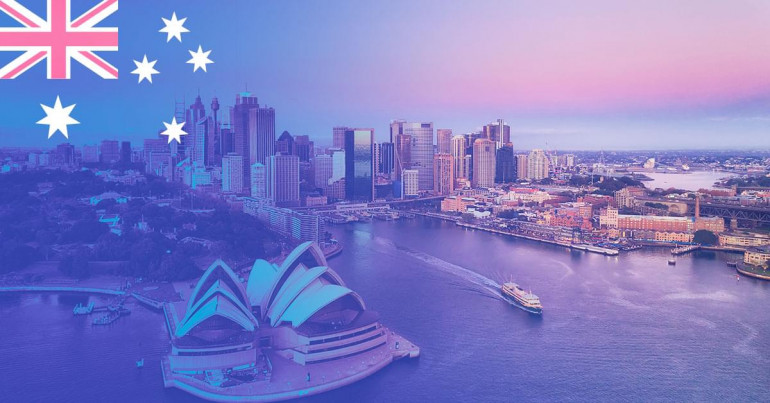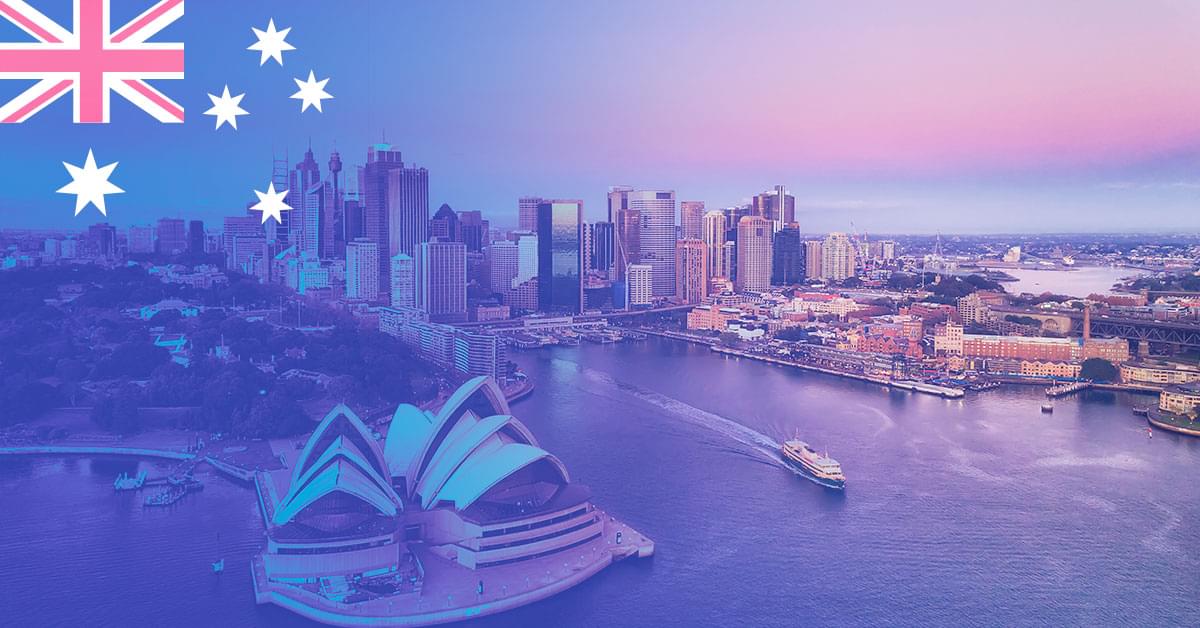
According to official data from the Australian government, there are approximately 1.2 million British expats in Australia.
Sunny beaches, a high standard of living, shared language and the cultural ties make Australia an attractive place for many Brits.
But how do you move to Australia from the UK? While the Commonwealth and shared language does provide an easier transition, there is still a significant amount of preparation that is required.
In the latest article in our Expat Life series, we have provided a checklist for moving to Australia from the UK outlining everything you need to know.

Get a visa
There are various types of visa that you can obtain to gain entry to Australia for various reasons, and the visa you choose will depend on your situation.
The main types of visa are:
- Visitor visas
- Work visas
- Study visas
- Family visas
- Business and investment visas
- Humanitarian visas
Each of these visas has a subcategory within them. Make sure you know which type you will need. If you are moving to Australia for work, then you will likely look to obtain a work visa, whereas if you are a student, a study will make more sense for you.
Australia is relatively stringent with their visa policy. As of October 2023, Australia has aimed to tighten visa requirements in various areas. For example, students are required now to show savings of at least 24,505 AUD (£12,652) in order to obtain a student visa.
For a work visa, there are certain jobs which are a priority for the Australian government, and will therefore be processed separately. You can see the list of jobs here, which generally includes skilled workers and professionals. For many work visas in Australia, you must also be under 45 years of age.
Make sure you pick the right visa and prepare for any costs or extra requirements prior to your move.
Healthcare
Basic healthcare in Australia is free, as part of Medicare, but there is still private healthcare available for those who can afford it. Approximately 45% of the population has access to private healthcare.
Medicare covers all Australian citizens and permanent residents, and provides medical appointments, medication, and hospital care either for no cost, or a small payment. There are also some physiotherapy, community nursing and dental programs covered by Medicare.
More advanced healthcare services are covered by Primary Health Networks (PHNs), which work across the country to support certain areas and coordinate different parts of the healthcare system.
The type of visa you have will depend on whether you are required to pay for private healthcare, or if you can join the public system.
Expats living in Australia, both students and workers, will often have to opt for private insurance, as they are not yet permanent residents or citizens. However, many regional work visas provide access to Medicare, or at least a reduction in fees.
You can check your eligibility on Medicare’s website. Remember that successfully registering with Medicare may take up to eight weeks.

Accommodation
The housing market in the UK may seem expensive, but Australia is equally as expensive, and in some cities such as Sydney, even more expensive. Rental prices in Australia have gone up in the last 10 years due to high demand and a shortage of properties in some popular areas.
However, compared to the UK, Australian houses are much larger and can be compared with American houses in terms of size.
Many landlords and letting agencies will require Australian references to access their properties, which can be tricky for expats.
This can be one of the biggest pain points for moving to Australia, so make sure you locate a reference, or ensure that a landlord or agency doesn’t require an Australian reference.
The Australian rental market is also less protected than in the UK, which has more laws such as the HMO licence, which doesn’t exist in Australia.
Banking
Opening an Australian bank account from the UK is a simple process. First of all, you must be over the age of 18 in order to open a bank account from Australia.
The four biggest banks in Australia are:
- NAB
- CommBank
- ANZ
- Westpac
These banks all have relatively simple online applications, and low eligibility requirements for migrants. You must be arriving within 3-12 months of your application, so make sure that you time your application accordingly.
You can also use e-banks such as Monzo or Revolut for other finances, as they offer zero fees when spending abroad. This might be an ideal option if you’re looking for a backup against your new Australian bank account.

Tax & identification
You will need to register for a Tax File Number (TFN) which is the equivalent of a National Insurance Number (NIN) in the UK. This number will be used for taxation and registration purposes. You can use this application form to obtain a TFN if you are outside the UK.
The tax brackets in Australia are as follows:
- $0 to 18,200 – 0%
- $18,201 to $45,000 – 19%
- $45,001 to $120,000 – 32.50%
- $120,001 to $180,000 – 37%
- $180,001 and over – 45%
You can drive in Australia using a UK driving licence – however, only for three months. After that, you will need to obtain an Australian driving licence. You will need to complete a few tests
If you become a resident, you are required to exchange your UK licence for an Australian one. All UK licence holders over the age of 25 (depending on the state) are required to take a theory or a practical driving test.
Conclusion
Moving to Australia can be complicated and costly, but an incredibly worthwhile transition. If you are looking to send money to Australia, then look no further than CurrencyTransfer.
Moving abroad can be a daunting task, but we can help remove the stress of moving your finances across the border. Sign up for an account with CurrencyTransfer today for free, and you’ll be assigned an account manager who can guide you on your new journey.
As always, for currency news and insight into the ever-changing world of currency, make sure to stay up to date with our Expert Analysis, as well as our daily Market Commentary.
Caleb Hinton
Caleb is a writer specialising in financial copy. He has a background in copywriting, banking, digital wallets, and SEO – and enjoys writing in his spare time too, as well as language learning, chess and investing.



